When buying or selling a property, conducting a thorough inspection is crucial for identifying potential issues. Some homeowners and buyers might consider inspecting a property themselves to save money or time. However, there are significant differences between a DIY inspection and a professional one. This blog compares the pros and cons of each approach and highlights why expertise matters in building inspections.
DIY Building Inspection: Pros and Cons
Pros of DIY Inspections
- Cost Savings
- One of the main reasons people opt for a DIY inspection is the potential to save money. A professional inspection can cost hundreds of dollars, whereas a DIY inspection is free.
- Convenience
- DIY inspections can be done on your own schedule without needing to coordinate with a professional. You can take your time to walk through the property and inspect areas at your own pace.
- Personal Involvement
- DIY inspections allow you to be directly involved in the process, giving you a sense of control over the evaluation. It can also help familiarize you with the property in more detail.
Cons of DIY Inspections
- Lack of Expertise
- Most property buyers and owners lack the technical knowledge required to identify hidden or subtle issues. A DIY inspection might miss critical problems like structural weaknesses, faulty wiring, or plumbing issues.
- Inability to Access Certain Areas
- Some parts of the property, such as roofs, crawl spaces, or attics, can be difficult or unsafe for the average person to inspect. Professionals have the tools and experience to reach these areas safely and thoroughly.
- Limited Understanding of Building Codes
- Building inspectors are trained to ensure that properties comply with local building codes and regulations. DIY inspectors might not be familiar with these standards, which can lead to overlooking compliance issues that can be costly to fix later.
- No Formal Report
- A DIY inspection typically doesn’t result in a formal, detailed report. This lack of documentation can hinder negotiations in a real estate transaction and may leave you without a written record of the property’s condition.
Professional Building Inspection: Pros and Cons
Pros of Professional Inspections
- Expertise and Knowledge
- Professional inspectors are trained to identify potential issues in every aspect of a building, from the foundation to the roof. Their experience allows them to catch problems that a layperson might miss, such as mold, electrical hazards, or structural concerns.
- Comprehensive Reports
- A professional inspector will provide a detailed report with photographs, descriptions, and recommendations for repairs. This report is essential for buyers or sellers to negotiate repairs or adjust the sale price.
- Access to Specialized Tools
- Professional inspectors use specialized tools and equipment like moisture meters, thermal imaging cameras, and electrical testers. These tools help detect hidden issues like leaks, faulty wiring, or insulation problems that aren’t visible to the naked eye.
- Objective and Unbiased Opinion
- A professional inspector provides an unbiased, third-party opinion on the property’s condition. This objectivity is crucial for both buyers and sellers, as it ensures the inspection report is trustworthy and not influenced by emotional attachment to the property.
- Safety
- Professional inspectors are trained to safely assess potentially dangerous areas such as electrical systems, high roofs, or areas with mold or asbestos. They know the risks involved and how to manage them safely.
- Knowledge of Building Codes
- A professional inspector is familiar with local building codes and can identify areas where the property may not be compliant. This knowledge helps prevent future legal or financial issues related to code violations.
Cons of Professional Inspections
- Cost
- The most significant downside of hiring a professional is the cost, which can range from a few hundred to over a thousand dollars depending on the size and complexity of the property.
- Scheduling
- Coordinating an inspection with a professional can sometimes be inconvenient, especially if the property is in a competitive market where time is of the essence.
Key Differences Between DIY and Professional Inspections
1. Scope of Inspection
- DIY: A DIY inspection might cover the basics like visible damage, broken appliances, and minor cosmetic issues. However, without the proper training, you may overlook serious problems such as structural defects, electrical hazards, or plumbing leaks.
- Professional: A professional inspection is much more detailed. Professionals are trained to look beyond the surface and assess the integrity of the building’s structure, electrical systems, HVAC, plumbing, roofing, and more. They use specialized equipment to detect hidden issues.
2. Quality of the Report
- DIY: In a DIY inspection, the results are typically informal, with no official report to back up your findings. This lack of documentation can be a problem if you’re negotiating a sale or purchase, as you have no official evidence to request repairs or a price reduction.
- Professional: A professional building inspection comes with a detailed report that includes photographs, descriptions, and recommendations. This report is critical for negotiations and provides peace of mind that the property has been thoroughly inspected.
3. Liability and Legal Implications
- DIY: If you miss a serious issue during a DIY inspection, you are responsible for the consequences, including repair costs or potential legal liabilities.
- Professional: Most professional inspectors carry liability insurance. If they miss something critical, their insurance may cover the costs of the oversight. Additionally, a professional report can protect you legally if issues arise after purchase.
4. Detection of Hidden Problems
- DIY: You might not be able to identify hidden issues such as pest infestations, water damage, or structural problems without professional tools and expertise.
- Professional: Professional inspectors use advanced technology to detect issues that are not visible to the naked eye, such as thermal cameras for heat loss, moisture meters for leaks, and probes for termite damage.
When to Opt for a DIY vs. Professional Inspection
When DIY May Be Suitable:
- If you are conducting a preliminary walk-through and simply want to get an overall sense of the property’s condition.
- If you have experience in construction, home repair, or similar fields and feel confident in your ability to identify potential issues.
When to Hire a Professional:
- For any real estate transaction where a formal report is required to negotiate repairs or pricing.
- When buying an older home or one that has undergone extensive renovations, as it may have hidden issues.
- If the property is located in an area prone to specific problems (e.g., flooding, earthquakes, or pest infestations).
- When your financial or legal responsibilities may be affected by the findings of the inspection.
Conclusion: Why Expertise Matters
While a DIY inspection may save you money upfront, it lacks the depth, reliability, and legal backing of a professional inspection. The expertise, tools, and comprehensive reports provided by a professional can save buyers and homeowners from costly surprises down the road. For any real estate transaction or major investment, hiring a professional building inspector is almost always the wiser choice.

